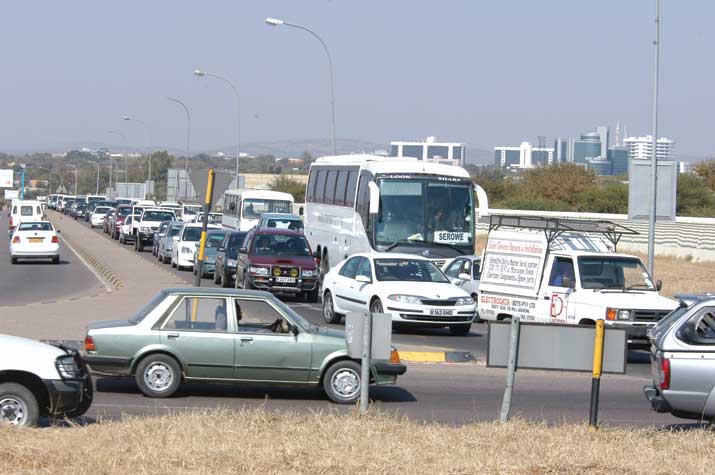The Department of Road Transport and Safety (DTRS) might need to come up with innovative measures, such as partnering with other agencies such as the Botswana Postal Service to meet customers’ demands, Gazette Business has learnt.
President Ian Khama said in his State of the Nation address in November, that the number of registered motor vehicles in Botswana roads has continued to increase, rising to about 465 thousand as of August 2013. This means a per capita motor vehicle ratio of 217 per 1000, which is double what it was in 2008 and one of the highest in the developing world.
According to the DRTS between 1995 and November 2013, all registered vehicles (including imports), stood at 509, 074. All imported vehicles by make since 1995 to date total 270, 084. Asked on the impact of this high number of vehicles on the country’s roads, DRTS spokesperson, Mmapula Sampson said that the most obvious was an increase in road accidents.
“Other consequences of this include an increase in government spending on health as well as reduction on individuals’ disposable income. The government might be forced to increase the budget allocated for roads construction and maintenance resulting in an increase in taxes and other fees. The youths have been identified as the most affected by road accidents,” said Sampson.
According to the statistics by the DRTS, out of 270, 084 of all imported (used) vehicles, 139, 332 were imported from Japan, 108, 454 from South Africa, Singapore (17, 234), United Kingdom (4, 177), USA (334), Namibia (324) and 232 are from Korea.
Meanwhile, on the environmental issues pertaining to grey imports, Sampson said unfortunately for Botswana a huge percentage of its vehicles are imports grey or brand new. “However, emission testing of the grey imports has proven to be far better than vehicles that have been around for a while locally or even brand new ones from South Africa. Because of the size of its population, Botswana has a very small foot print. However, the number of vehicles increases on a daily basis,” she added.
In consequence, she indicated that the government through the ministry is in the process of drafting a legislation that will address greenhouse emission especially from vehicles. She explained that, “If the level is high or even higher than that in developed countries, it could lead to the reduction of grey imports. Countries like Singapore have very high restriction and penalties/taxes on emissions such that it makes it very expensive to own an old vehicle.”
Historically, used vehicle markets have been supplementary to new car markets in satisfying transportation needs for different customers.
Tsienyane Modise who owns two grey imports told Gazette Business that he welcomes the legislation initiative but feels that if it means banning of grey import vehicles from entering Botswana it would be a disadvantage to many Batswana. “Most of us will no longer afford to buy the so called original cars. What we earn can only buy these Japanese cars,” he said.
Legislation on greenhouse emission on cards

